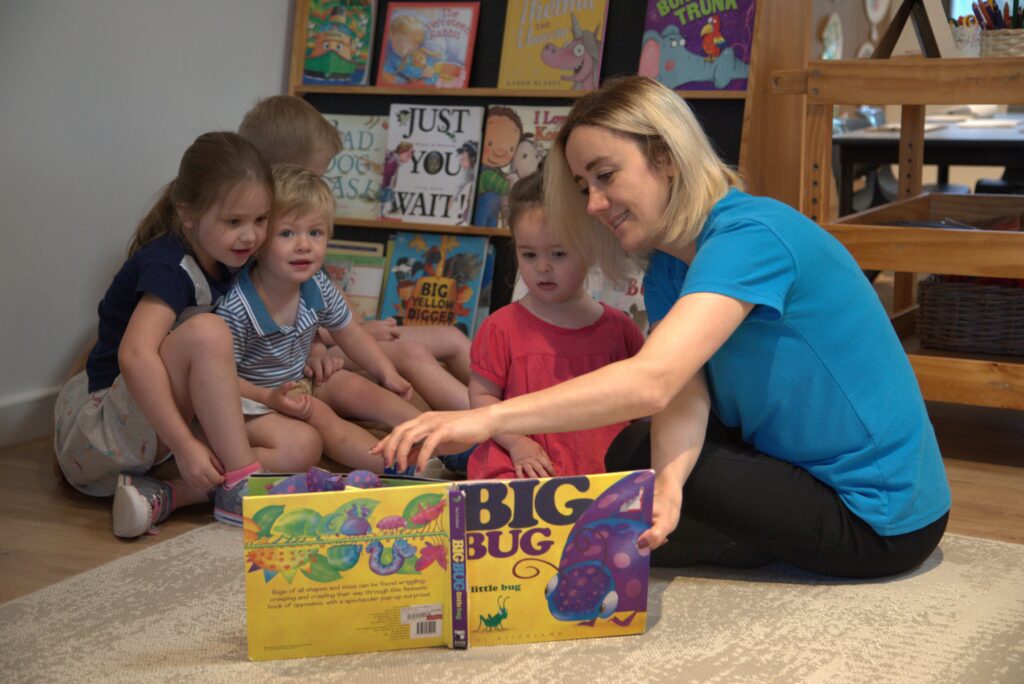 Book a Tour
Book a Tour Instagram
Instagram Contact Us
Contact Us CCS Estimator
CCS Estimator
Parents want the very best for their children, and with the right parenting and guidance, it’s not a difficult task to raise happy, healthy, and successful individuals. One of the keys to achieving this is a high-quality education, a supportive environment, and an emphasis on the right interests from an early age. At a quality childcare centre, your child will not only receive the care and attention they need but also be exposed to a variety of activities that will help them develop critical skills in areas like art, reading, emotional intelligence, languages, and maths. Parents and educators must work in tandem to build comprehension, memory, processing speed, and reasoning skills. If you’re a parent who values these capabilities in your children, we’ll explore the ways that dedicated parents and a quality childcare centre can nurture valuable skills in toddlers.

Healthy body, healthy mind
If you want your child to get the best head start, begin with nutrition. Diets high in fat and sugar content are negatively correlated with IQ scores, research states. A child’s brain develops along a genetic program while being influenced by environmental factors such as nutrition. The role of essential fatty acids in the body has been subject to increased interest, especially regarding cognitive growth. Fatty acids are found in grey matter and play a key role in the function of brain tissue. They comprise our neuronal membranes and influence how well our neurons can send out electrical impulses. Furthermore, a number of research projects have positively correlated a mother’s consumption of fish during pregnancy with cognitive development in children. A UK study found that, after controlling for other factors, children whose mothers had a lower seafood intake had a lower IQ. Therefore, omega-6 and omega-3 fatty acids should be prioritised in the diet of pregnant women and young children. The child’s brain does 80% of growing between the ages of 0 and 2, so deficiencies in diet may have a heightened effect during this period. To practically adapt this advice, ensure growing children have plenty of fatty fish like salmon, anchovies, and sardines in their diet. Heritage House offers meals for children that are carefully reviewed against nutritional guidelines to support their growth and development.
Reading, relearned
It’s well known that reading to your children is important for developmental growth as a child. However, research shows that reading to your children is less effective than reading with them. Our educators are trained in helping young children with language development, so we understand that it’s best to enrich book reading by making it interactive. Rather than reading to your children, ask open-ended questions about the story as it continues. Take turns reading aloud and offer guidance as needed. Connect the story to the child’s personal experiences or interests, making it more relatable and engaging for them. Finally, discuss new vocabulary words that may come up during the reading, and encourage the child to use them in their own language. Tools like Mem Fox’s 10 reading commandments can be great for this.
Sleeping beauty (and brains)
Higher infant and toddler sleep quality has been proven to correlate with healthy weight maintenance, but it also plays a vital role in cognition and development. Adequate sleep duration is essential for young children’s brain development and can significantly impact their cognitive abilities. According to the National Sleep Foundation (NSF), toddlers between 1-2 are required to get 11-14 hours of sleep, while preschoolers aged 3-5 should be getting 10-13 hours. However, many infants and young children do not meet this recommended threshold, and may suffer cognitively as a result. In fact, research has shown that inadequate sleep in early childhood can lead to difficulties with attention, memory, and problem-solving skills, among other cognitive impairments. As such, ensuring that young children get the recommended amount of sleep is crucial for their healthy cognitive development.
The bilingual advantage
Research has shown that bilingualism can play a significant role in enhancing cognitive development in young children. Studies have indicated that bilingual children tend to exhibit more advanced problem-solving skills, improved memory, and enhanced creativity compared to their monolingual peers. Moreover, learning multiple languages at a young age has been linked to improved cognitive flexibility and attention control. These benefits can lead to academic and professional advantages later in life. Bilingualism can also provide cultural and social benefits, enabling children to communicate with a broader range of individuals and fostering a deeper understanding and appreciation of other cultures. Overall, the evidence suggests that exposing children to multiple languages early on can contribute to their cognitive, academic, and social development, making them smarter and more well-rounded individuals.
In conclusion, raising smart children requires a combination of factors. It is essential to provide children with a supportive and stimulating environment that encourages curiosity, exploration, and critical thinking. Remember, every child is unique, and as parents and educators, our role is to guide and support them to become the best version of themselves.